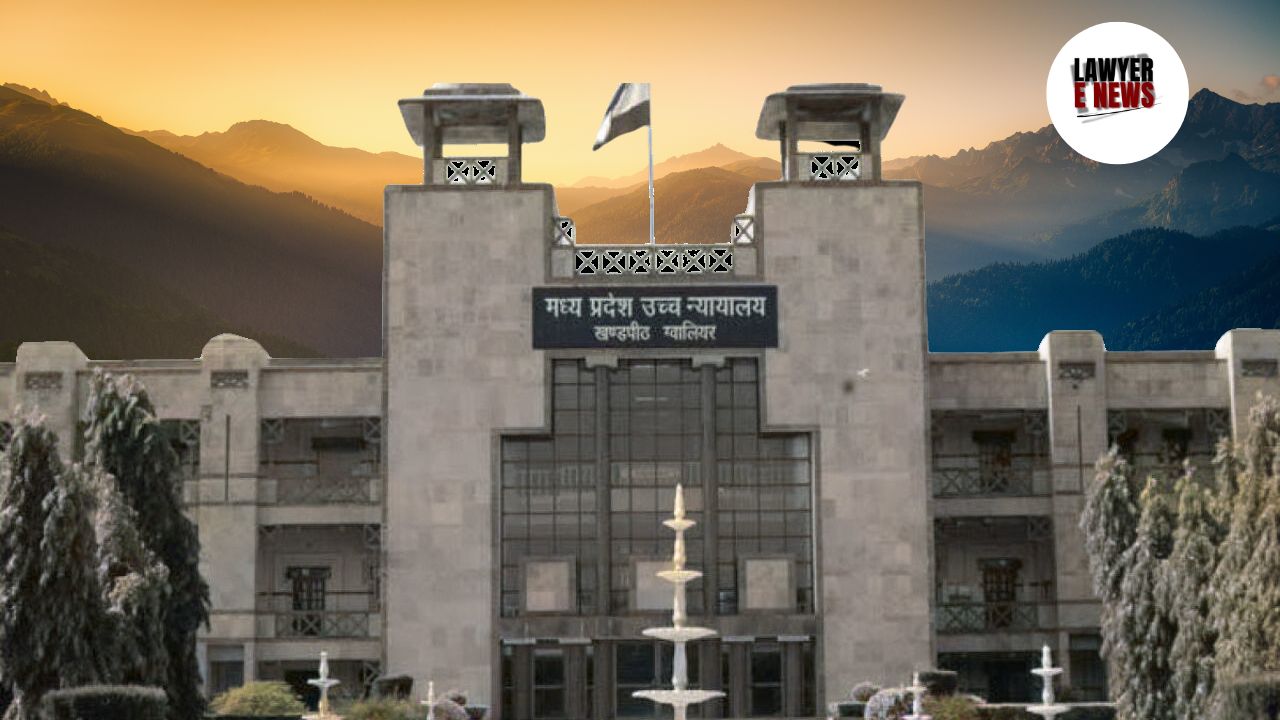-
by Admin
15 February 2026 5:35 AM



Madhya Pradesh High Court invalidates arbitration award due to improper jurisdiction and non-signatory status of appellant Taj Hotel Resorts and Taj Mahal Palace.
The High Court of Madhya Pradesh at Indore has overturned an arbitration award issued in favor of Anil Sharma against Taj Hotel Resorts and Taj Mahal Palace and Towers, and Hotel Taj Residency, citing lack of jurisdiction and the fact that the appellant was not a party to the original agreement. The judgment, delivered by Hon'ble Shri Justice Subodh Abhyankar, highlighted significant procedural and substantive errors in the arbitration process, ultimately leading to the setting aside of the award.
Taj Hotel Resorts and Taj Mahal Palace and Towers, a unit of Indian Hotels Company Limited, entered into a franchise agreement with Hotel Taj Residency, a unit of Royal Manor Hotels and Industries Limited. Anil Sharma, the proprietor of Impact Travels, provided car services to Hotel Taj Residency under two successive agreements from 2001 to 2007. After the expiration of the second agreement, emails exchanged between Sharma and officials of Taj Hotel Resorts suggested a continuation of services, which Sharma interpreted as an extension of the contract. However, on May 16, 2007, Hotel Taj Residency informed Sharma to wind up his services by May 31, 2007. Sharma then filed a civil suit for damages due to premature termination, which was directed to arbitration. The arbitrator ruled in Sharma's favor, awarding him damages of Rs. 1,33,08,493/-, which led to the appeals by Taj Hotel Resorts and Hotel Taj Residency.
The court noted that the original agreement specified Ahmedabad as the sole jurisdiction for any legal actions. "The parties have agreed that in case of any civil legal action, the Court at Ahmedabad alone shall have jurisdiction," Justice Abhyankar emphasized. The appointment of an arbitrator by the Madhya Pradesh High Court was therefore deemed inappropriate. The court referred to several Supreme Court rulings to substantiate this stance, including the BGS SGS SOMA JV v. NHPC Limited case, which underscored the primacy of the designated jurisdiction.
Justice Abhyankar pointed out that Taj Hotel Resorts and Taj Mahal Palace and Towers was not a signatory to the agreement between Sharma and Hotel Taj Residency. The court ruled that an entity cannot be bound by an arbitration award if it is not a party to the arbitration agreement, referencing the Supreme Court decision in Sandeep Kumar and Others v. Master Ritesh and Others which stated that "there can be reference to arbitration only if there is an arbitration agreement between the parties."
The court found that the arbitrator's conclusion that emails between Sharma and Taj Hotel Resorts extended the contract was unreasonable. "The finding recorded by the arbitrator is such that no fair-minded or reasonable person would ever arrive at and the view taken by the arbitrator is not even a possible one," noted Justice Abhyankar, marking the conclusion as perverse and unsupported by the presented evidence.
The High Court ruled that the arbitration award suffered from patent illegality and was thus liable to be set aside. It stressed that jurisdictional errors and binding non-parties to an agreement are significant legal flaws. Additionally, the court emphasized that arbitrators must operate strictly within the bounds of the contractual terms agreed upon by the parties.
The High Court's decision to set aside the arbitration award underscores the importance of adhering to jurisdictional stipulations and recognizing the boundaries of contractual agreements in arbitration processes. This judgment serves as a crucial precedent in reinforcing the principles of contractual consent and jurisdiction in arbitration disputes.
Date of Decision: June 6, 2024
Taj Hotel Resorts and Taj Mahal Palace and Towers v. Anil Sharma and Others
